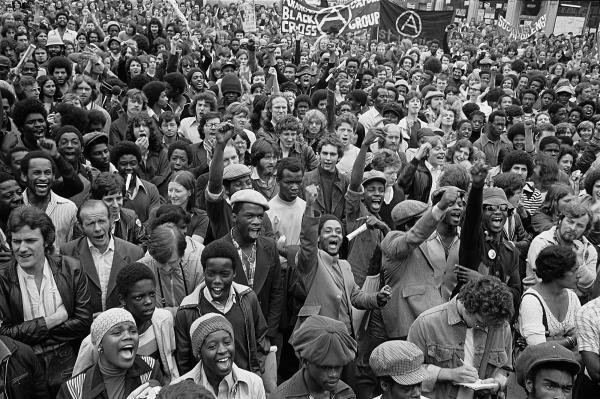Silvio Berlusconi, the former Prime Minister of Italy, has, after numerous trials for countless crimes, finally been convicted. This wealthy politicians and businessman has protested about being the victim of a politicised judiciary. Such an accusation raises an important question: is the judiciary under capitalism “political”? Ben Gliniecki looks at the role of judges and the law in capitalist society.
Silvio Berlusconi, the contemptible epitome of ruling class morality and belligerence, has had his appeal against a conviction and prison sentence for tax fraud steamrolled by Italy’s Court of Cassation. For decades the courts and the politicians have been enmeshed in a lucrative web of smoke-filled rooms populated by judges, media bosses, the mafia and MPs, all stewing in the juices of their own corruption. The fact that this cosy alliance has crumbled says a lot about the panic amongst the Italian bourgeoisie. It betrays the fear brought on by economic catastrophe that is opening fissures at the top.
But that is not the focus of this article, because this fiasco brings another question to light. Berlusconi has always claimed that he is the victim of a politicised judiciary and that he has been persecuted with a “judicial fury that has no equal anywhere in the civilised world”. Without going into the specifics of the Italian situation, we can ask the general question – does the judiciary in a capitalist society ever act in a politicised way?
Naturally the bourgeois liberals, who swear by the rule of law and idolise the blindness of justice, are horrified by such a suggestion. According to them the judiciary are impartial, neutral, independent, unbiased guardians of that rarely defined abstraction: justice. If our bourgeois liberal friends are to be believed then these judges must be superhuman – able to remove themselves from the whirlpool of everyday events and their own personal views, life experiences, attitudes and prejudices. They must be able to ignore the tumultuous affairs of world politics and economics. They can never recognise individual idiosyncrasies in the unfortunates appearing before them, they must just apply the law as they find it – blind and inflexible.
Clearly such people do not exist. Even just to get to be a judge, that individual must have followed a particular path in life – come from a particular background, attended particular educational establishments, socialised with particular people, had a particular job and finally become a judge. All the character traits, the experiences, the thoughts, the actions and the beliefs that allowed this person to become a judge, do not simply disappear upon installation behind the judicial bench.
The very fact of having a job that involves applying the law of a capitalist society cannot help but carve itself upon the consciousness of the judiciary. Laws made by capitalists will protect capitalists, and that inevitably means that they must attack workers. Thus a judge cannot help but spend all day every day attacking workers. This is not the source of a great deal of distress for the judge because they are earning an eye-watering salary for their role as an officer of the bourgeois state, which places their material needs well beyond a position in which they might be able to understand the lives of those workers upon whom he passes judgement.
The point that must be forcefully made against the idealistic proclamations of the bourgeois liberals is that judges are individual human beings, and like all individual human beings, their consciousness is shaped by their environment. These judges do not stand above class society and they cannot extract themselves from it. It envelops them and seeps through their entire existence, inextricably entangling itself with their thoughts and actions. And the reality is that under capitalism, the resulting consciousness of the judiciary renders it a wing of the bourgeoisie – of the capitalist class.
Despite this clear class prejudice, which is political to the core, it is still common to hear liberals talking of the apolitical nature of the judiciary. It is often the case with people who claim not to be political that this mask of indifference covers a reactionary and conservative outlook. It is only those who are not suffering under the present conditions who can afford to be indifferent to politics, for those who experience injustice and oppression, being apolitical is not an option.
And so it is with the apparently apolitical judiciary. Their refusal to enter into the realm of politics hides their support for traditional conservatism, a facet of their class interest. While trumpeting the fanfare of their impartiality, these judges firmly nail their colours to the mast of political reaction.
This is the explanation for Berlusconi’s frenzied outburst following the Court’s decision to uphold his conviction. He complains that the judiciary is “uncontrollable and uncontrolled” because he, as a proud member of the bourgeoisie, has been used to having the bourgeois judiciary on his side. Now he has lost control and cannot understand why.
We should not make the mistake of thinking that the conflict between them means that either Berlusconi or the Italian judiciary have ceased to represent the bourgeoisie. In fact this demonstrates the widening gulf between different sections of the bourgeoisie all scrambling for cover from the sparks of the revolutionary flame being kindled throughout Europe.
So we agree with Berlusconi that the judiciary is politicised because the judges, like anyone else, will act only in their own class interest. It may also be true that Berlusconi is indeed being persecuted by the judges because they believe that it is in the interest of the bourgeoisie as a whole to destroy this individual member of the ruling class who is nothing but an embarrassing pest. But on the other side we can see the disgusting hypocrisy of Berlusconi, whose accusations of judicial bias arise only now, when it is he who is on the receiving end, but which were not even whispered as long as the judges’ enforcement of bourgeois politics was not directed at him.
We can have no faith in capitalist politicians or the capitalist judiciary. We must take our lives into our own hands and wage our struggle on a firm working class basis.






